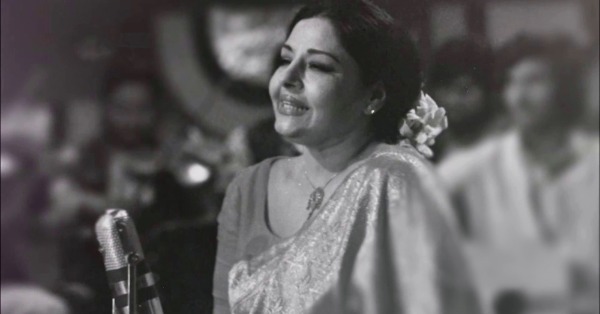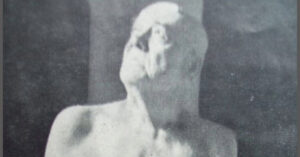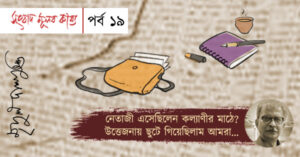Kalkatta… my earliest memories of this magical city are of the stage at the Parsi Theatre, where my sister Mukhtar Begum would be enthralling audiences. Of parties at which KL Sahgal and Chandra Mohan would be present alongside other renowned artistes of the time. Laughter, music, a passion for the arts – all this shone through on such evenings,” reminisces Farida Khanum. “I was a chit of a girl, and was strictly barred from these parties, so I would peep in as my sister, her husband Hasan Kashmiri and their friends held forth.”
Farida Khanum was born in Kolkata in a family that was steeped in the arts. From a young age, she charmed her sister as well as the distinguished circles in which the family moved, with her sweet tuneful voice. Ustad Bade Ghulam Ali Khan was particularly impressed with young Farida’s precocious talent and enlisted Ustad Aashiq Ali Khan as Farida’s mentor.
The Ustad, who Farida called ‘Babaji,’ would take her through difficult raags. “I would want to run down and cycle with the little English girl next door, but Babaji would have none of it,”
As the years rolled by, the family would divide time between Amritsar and Calcutta, and would often also visit Delhi. It was the high noon of Indian classical music at the time, and a teenaged Farida Khanum remembers the legendary vocalist Siddheswari Devi, exponents of the vichitraveena and renowned ustads performing at the All India Radio studios. Young Farida knew this was her future, in a decade she, too, would belong to this charmed group.
Farida Khanum was born in Kolkata in a family that was steeped in the arts. From a young age, she charmed her sister as well as the distinguished circles in which the family moved, with her sweet tuneful voice. Ustad Bade Ghulam Ali Khan was particularly impressed with young Farida’s precocious talent and enlisted Ustad Aashiq Ali Khan as Farida’s mentor.
In August 1947, all those dreams changed. “We were in Murree, a hill station now in Pakistan, when we got news of Partition. All the places, I grew up in, Calcutta, Delhi and Amritsar were now across the border, and my designated home was Lahore, a completely unknown place,” recalls Farida Khanum. Like millions of her generation, she was a pawn in the march of history, but the young vocalist was resilient, and gradually started making her way through her new world.
“When we first moved to Lahore, we were assigned a large haveli,” Farida Khanum recalls. “However, my mother was convinced that the well behind the haveli had unhappy dispossessed ‘rooh’ (spirits) and so we moved to a smaller accommodation.”
The upheaval in her life notwithstanding, Farida Khanum’s own feisty spirit soon came to the fore, and once again her talent was what got her noticed. By the early 1950s, she was a regular voice in Radio Pakistan. Like a few of her contemporaries, she too gained immensely as an artiste from her collaborations with Faiz Ahmed Faiz.
“I met Faiz Saab at a function in Lahore, where I sang his famous ‘Sham -e-firaaq’. He was very impressed, and told me to come to Karachi for some more collaborations,” says Farida Khanum. “Though I was normally quite flighty and immature, there was a gravity about Faiz Saab and I also saw the awe and respect he got from senior bureaucrats and officials – I decided to take up his offer.”
Farida Khanum sang many of Faiz’s compositions, and remembers fondly her time with him and his wife, Alice Faiz. “Faiz Saab once handed me a ghazal in a car, he casually added that I would have to perform it in the evening,” smiles Farida Khanum. “I somehow managed to create a dhun for it and performed the ghazal.”
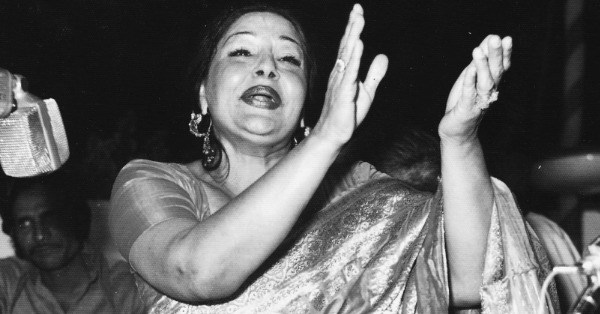
As Farida Khanum’s fame grew across borders, changing times impacted her in different ways. She was briefly censored from PTV during the General Zia years for the crime of appearing sleeveless for a recording! However, the sheer excellence of her performances as well as her growing popularity ensured that her stature remained untarnished. In the decades that followed, Farida Khanum became part of a special era of classical music and ghazals in Pakistan alongside Assad Amanat Ali, Iqbal Bano, Mehdi Hasan and Ghulam Ali, among others.
Across the border, too, her music crossed first into Punjab through hazy booster hookups (like Dhaka’s channels used to be watched in Kolkata in the 1980s) and then swept to other parts of the country through cassettes.
Today, Farida Khanum is best known for Aaj Jaane Ki Zid Na Karo, a smouldering ghazal that has been called ‘The Love Song of Pakistan.’ The song was popular enough when Farida Khanum first sang it but truly catapulted into India’s consciousness when it featured in Mira Nair’s Monsoon Wedding. Today, while Farida Khanum’s original gleams like a solitaire across YouTube and music apps, scores of other singers as diverse as Arijit Singh (Farida Khanum had predicted great things for him in 2013 itself, after hearing his vocals in Barfi), AR Rahman and Shilpa Rao have done popular versions of the song.
Farida Khanum’s longing to visit India was one that finally came true in 2014 when she came to speak and perform in Kolkata as part of the Kolkata Literary Meet. However, she still rues the fact that she could not accept a request from a very special Calcuttan four decades earlier.
“When Shatranj Ke Khilari was being planned, Satyajit Ray had wanted me to sing for the film. His team got in touch with me and I was truly honoured and excited,” says Farida Khanum. “He was already an internationally renowned figure by then and I thought meeting and working with him would be an opportunity of a lifetime.” Sadly for her, she failed to get a no-objection certificate from the Pakistan government and could not cross the border. That no-objection certificate would have enabled Farida Khanum to join a list that featured among others Ravi Shankar, Ali Akbar Khan, Begum Akhtar and Vilayat Khan, all of whom had collaborated on the music of Ray’s cinema.
As Farida Khanum’s fame grew across borders, changing times impacted her in different ways. She was briefly censored from PTV during the General Zia years for the crime of appearing sleeveless for a recording! However, the sheer excellence of her performances as well as her growing popularity ensured that her stature remained untarnished.
Perhaps that failed trip prompted Farida Khanum to ignore her arthritis and other health issues when she agreed to come to Kolkata for the January 2014 Kolkata Literary Meet. The roadblocks were several but finally her ‘aane ki zid’ carried the day. Inconvenient flight schedules meant she had to cross on foot from Wagah into Amritsar. Fate eerily conspired to thus ensure that she visited the two playgrounds of her youth once again, when she was in her eighties! “I was in Amritsar for only a day but we did drive around and explore the changed landscape for old hidden memories,” she sighed. Ali Sethi, two of her daughters and a granddaughter accompanied her on the trip and through Farida Khanum’s stories, tried to relive her teenage years. “She kept looking at the alleys and telling us which road had what when she lived there,” said Sethi about their brief stopover in Amritsar.
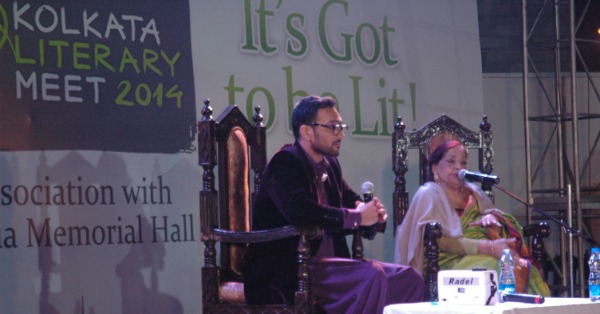
However, it was returning to Kolkata that was Farida Khanum’s long-held dream and when she spoke at the Victoria Memorial on a chilly January evening and performed at the GD Birla Sabhaghar the next day, she mesmerised the audience with her trademark charm, easy humour and faultless performance. Being at the Victoria Memorial, seeing Chowringhee and catching glimpses of the Maidan, memories galvanised the diva – fatigue, travel blues, chaos caused by a political rally, and her own severe arthritis all melted away in a flood of flashback. It was a homecoming for the ages, and it is fitting that as of today, the last time India got to see the queen of ghazals live, it was in Kolkata, the city of her birth.
